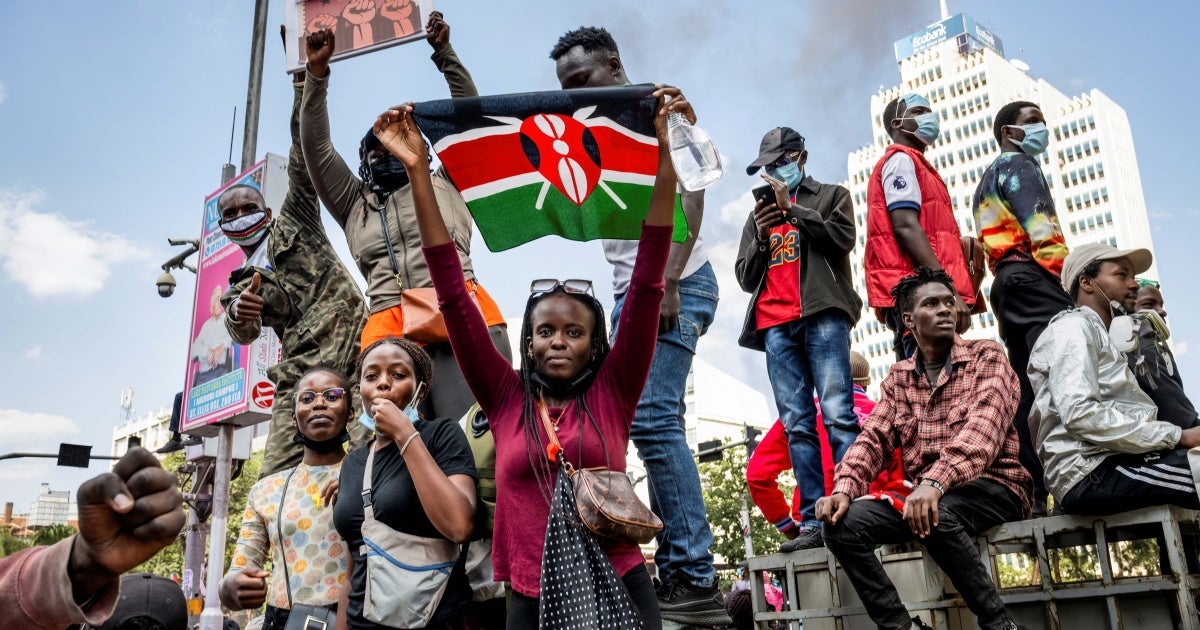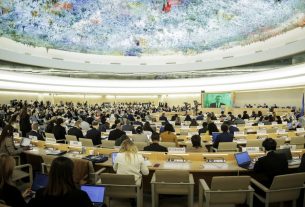Date: November 11, 2024
In a tragic and ongoing aftermath of Kenya’s anti-tax protests, dozens of people remain missing, with families and human rights groups still searching for at least 66 individuals who disappeared following a brutal police crackdown earlier this year. The June 2024 protests, sparked by rising taxes and worsening economic conditions, led to violent confrontations between demonstrators and law enforcement, resulting in multiple deaths and injuries. Since the protests, the families of the missing have not only been left in anguish but are also demanding justice from the government, which has yet to provide answers about their loved ones’ whereabouts.
The missing people are believed to have been abducted by security forces, detained in secret locations, or possibly killed during the crackdown. Human rights groups, including Amnesty International and Human Rights Watch, have condemned the Kenyan police’s use of excessive force and called for urgent investigations into the disappearances.
Background to the Protests
The anti-tax protests erupted in June 2024, following a controversial decision by President William Ruto’s government to implement a series of tax hikes aimed at addressing Kenya’s increasing national debt and boosting state revenue. The taxes targeted basic goods, fuel, and the informal sector, putting immense pressure on ordinary citizens already struggling with the rising cost of living.
The protests initially began peacefully, organized by opposition leaders and civil society groups, with many Kenyans calling for the government to address economic inequality, unemployment, and widespread corruption. However, as protests spread across major cities such as Nairobi and Kisumu, the government responded with brutal force. Police used tear gas, rubber bullets, and, according to witnesses, live ammunition to disperse crowds.
By the end of June, the violence had claimed dozens of lives, including protesters, bystanders, and at least one police officer. The Kenyan police arrested hundreds of protesters, many without due process. The aftermath of this crackdown has led to a growing outcry from human rights groups, with many pointing to the violent suppression of dissent as a hallmark of Kenya’s authoritarian response to public discontent.
The Disappearance of Protesters
In the wake of the police violence, relatives of missing protesters reported that their loved ones had been abducted by security forces or detained in undisclosed locations. At least 66 individuals are officially listed as missing, but the true number may be even higher. Families have been desperately searching hospitals, police stations, morgues, and other facilities without receiving clear answers from the authorities.
In one heart-wrenching case, the family of a missing protester stated that they were shown a picture of his body in a morgue, but they were told they could not identify him until after a full investigation, which has not materialized. Others claim that relatives were arrested and taken away by heavily armed officers, never to return.
Human rights organizations have condemned the Kenyan government’s actions, urging for an independent investigation into the forced disappearances and extrajudicial killings that have taken place. Amnesty International has called on the government to stop the practice of using security forces to quash protests and to ensure that law enforcement follows international human rights standards.
Government’s Response
The Kenyan government has defended the actions of its police forces, claiming that they were simply maintaining order in the face of what they described as violent rioters. President William Ruto stated that the government had a right to protect public property and maintain peace, but he also emphasized that peaceful protest was a constitutional right.
Despite this, the ongoing search for the missing has put the government under intense pressure both domestically and internationally. The United Nations and the European Union have issued statements calling for transparency and the protection of human rights, urging Kenya to investigate the actions of its security forces during the protests and to provide answers to the families of the missing.
However, critics argue that the Kenyan government has not shown a genuine willingness to investigate the disappearances and that it is instead seeking to stifle dissent ahead of the 2025 general elections. The lack of accountability for the actions of police forces, despite numerous reports of abuse, is seen as part of a broader pattern of impunity in Kenya.
Search for Justice
The families of the missing individuals have been left in a state of constant uncertainty, organizing protests and petitioning for the government to act. Many families have turned to social media, using platforms to share photos and names of their missing relatives, asking for help from both local and international communities.
Activist groups in Kenya, along with international organizations, continue to demand that the government take immediate action to uncover the truth behind the disappearances. Some have even called for international oversight of the investigation to ensure that it is impartial and effective.
While the Kenyan government has not yet responded substantively to these calls, the mounting pressure both within and outside the country may eventually force a change. As the search for the missing continues, it remains unclear whether the government will address the broader issues of police brutality and the suppression of peaceful protest.
Global Reactions and Implications
The international community has taken notice of the scale of the violence and the disappearances, with some countries urging Kenya to uphold its international human rights obligations. Human Rights Watch and Amnesty International have led campaigns calling for justice for the victims of the protests, and their efforts have garnered support from rights organizations worldwide.
The European Union has been particularly vocal, with statements from both the European Parliament and EU member states expressing concern over Kenya’s human rights record. The EU has warned that the continued suppression of dissent and the failure to investigate disappearances could damage Kenya’s international reputation and undermine its status as a key regional partner.
Conclusion: A Call for Justice
As the days turn into months and the families of the missing continue their painful search, the demand for justice grows louder. The Kenyan government faces increasing pressure to investigate the deaths, injuries, and disappearances that resulted from its response to the protests. Whether the government will act on these calls or continue to turn a blind eye remains uncertain, but one thing is clear: the search for accountability is far from over, and the world is watching.



